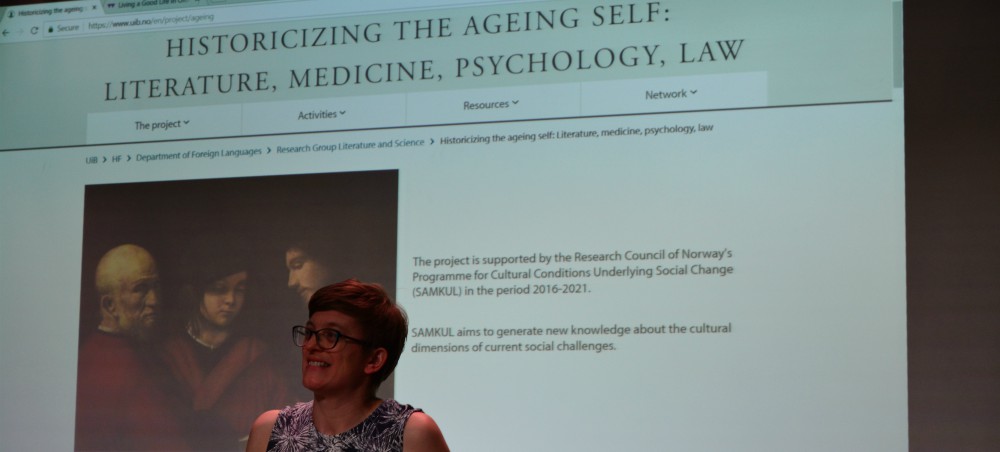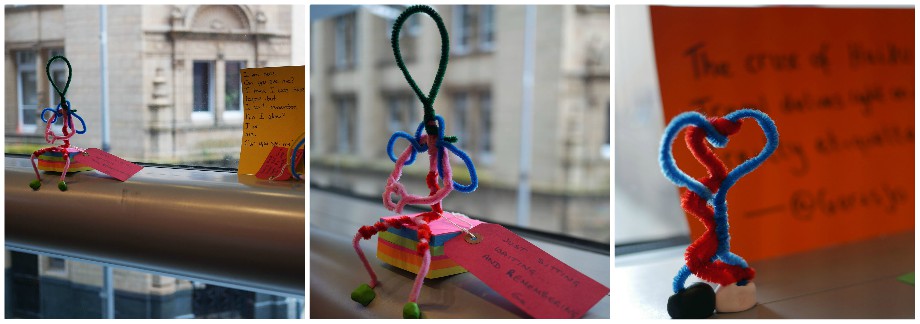Ageing as Embodied Time

Ageing as Embodied Time
Using literature to understand and improve wellbeing in older age
Our ageing population faces a range of physical and mental health challenges. Dr Liz Barry’s research has examined modernist literature, time and philosophy to better understand the personal effects of ageing on physical and mental health. Dr Barry’s research has helped train care and medical staff responsible for caring for older people, helping them better understand the experience and provide compassionate care. These literary insights into time and memory have formed arts interventions that are improving the wellbeing of those with dementia.
The challenge
We all experience old age differently. As our life expectancy increases, however, dementia and physical frailty are affecting more of us for longer. New research in the field of critical medical humanities is helping us understand the experience of ageing and discover new ways of improving life in older age. Dr Barry’s research incorporates ‘practical phenomenology’, focusing on the personal experiences of each individual older person and applying those insights to practical activities to engage the elderly in new ways of improving their wellbeing.
Our approach
Taking a broad, collaborative approach, Dr Barry combined findings from a number of successive projects and with input from a wide range of stakeholders, including:
- Philosophers
- Anthropologists
- Doctors
- Social workers
- Chaplains
- Medical ethicists
- Sociologists
Through a series of events at Warwick and across the UK, Dr Barry has shared her insight with thousands of fellow researchers and professionals. Her research has also led to the creation of a workshop and toolkit, ‘Rhythms of Memory’, which combines literary, musical and dance resources for care homes to use with dementia sufferers.

Our impact
Professionals and patients alike have benefited from Dr Barry’s research. Abbeyfield Society is rolling out Rhythms of Memory to its chain of care homes across the country. These new arts interventions go beyond filling time – they actively engage with older people and allow them to shape their own activities. A poetry playlist for those over 60 is also in development, with the aim of reconnecting the elderly with the verses from their childhood that are often deeply rooted in the long-term memory.
Dr Barry’s work has also had a positive impact on professional practice. After attending events showcasing her findings, doctors reported a new understanding of how to communicate with dementia sufferers. As a result, they changed the language they used when caring for patients, increasing their well-being. The influence of literary sources also helped many professionals look at existing issues in a new light, including thinking of sleep deprivation and isolation in old age as political and human rights issues.
Thanks to Dr Barry’s work with health and care professionals, more people will have access to higher quality of care in their later years.

Hear Dr Barry speak at the 'Beckett and the Brain' symposium

What is research impact?
Discover why it matters

More impact stories
Explore other work from English and Comparative Literary Studies at Warwick
